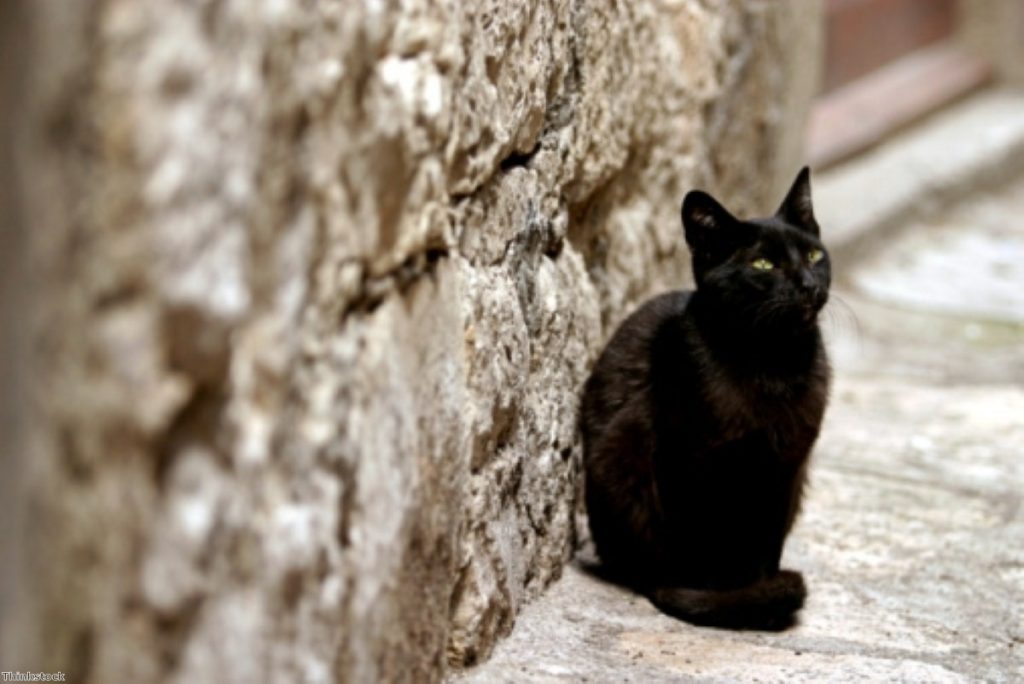The Week in Politics: The Omni-Gaffe Apocalypse
Governments, like people, have bad weeks.
It's not a coincidence. One morning you step in a puddle, get it into your head that you're having a bad day and suddenly you're your own worst enemy. Nothing goes right because you’re so obsessed with everything going wrong.
It's the same with governments. They make a couple of mistakes, the press smells blood, and all the criticism gets them self-conscious. Politics has a marvellous momentum, like foxhunting or kidnapping.
Things started badly. The press and public were still rather taken aback by the monument to ineptitude that was Budget 2012. The Tories were experiencing some of their worst coverage since the election, even in normally friendly newspapers. George Osborne's reputation for tactical brilliance had taken something of a battering and David Cameron was tarnished by association.


Then the cash-for-access scandal hit. Sunday Times reporters had smuggled a camera into the office of Conservative treasurer Peter Cruddas and claimed to be from a Liechtenstein-based wealth fund. "100 grand is not premier league. It's not bad – it's probably bottom of the premier league," he told them, in a discussion of potential donations. "Two hundred grand, 250 is premier league."
By the afternoon he had resigned. As if by magic, it transpired literally no-one in the Conservative party had met him. He was the phantom treasurer, operating without any sanction at all. By Monday, Downing Street was furiously publishing details of who the prime minister had met in his flat in No 10 – something he said just hours earlier would breach his privacy. Francis Maude braved the Commons for a particularly ugly party-political debate, in which Labour and Conservatives managed to strip themselves of any moral legitimacy whatsoever.
Looking back, Maude would have considered it a good day. Later in the week, he found himself on Sky News, desperately trying to get the agenda off party funding to the potential upcoming fuel strikes. The Tories like strikes. They say they don't, but they do really. Strikes, especially those organised by Labour's main financial backers, put the opposition on the wrong side of an issue. Maude was so keen to talk about the strike, in fact, that he encouraged the public to break the law by keeping over the legal limit of gasoline in their home, encouraged panic buying at petrol forecourts and, worst of all, used a series of terms which the public found baffling and posh, including the word 'supper'.
By the end of the week jerry can sales were up 500%, there were queues and fights at petrol stations and a woman had suffered 40% burns after trying to decant fuel in her kitchen.
The prime minister had other things to worry about. Pastygate, the most absurd political row to hit Britain since Gordon Brown called Gillian Duffy a bigot, started when Osborne whacked an extra 20% on hot food from bakeries. The move was supposed to put their output on the same basis as the fish and chip shop down the road, although the heat element (complete with insane rules as to "ambient temperature") was perhaps more ridiculous than most.
When Labour MP John Mann asked Osborne when he had last been to a Greggs, the chancellor sneered and said he could not remember. He'd clearly never been and never would. Suddenly, the pasty tax was a class issue.
Cameron, ever the man of the people, appeared at a press conference the next day with an answer he seemed to have learned by rote.
“I’m a pasty eater myself,” he said. Already there was something deeply weird about it. “I go to Cornwall on holiday. I love a hot pasty. I think the last one I bought was from the West Cornwall Pasty Company. I seem to remember I was in Leeds station at the time. The choice was to have one of their small ones or their large ones. I've got a feeling I opted for the large one and very good it was too.” Madness. With depressing predictability, it transpired that the last West Cornwall Pasty Company outlet in Leeds station closed four years ago. The only remaining pasty shop, the Cornish Bakehouse, had closed days earlier. The curse of Cameron!
The PM has form on questionable 'common touch' anecdotes. He once claimed to have seen Newcastle footballer Jackie Milburn play, despite being only four when he retired.
But if Cameron looked bad, Ed Miliband and Ed Ball's decision to make a totally off-the-cuff, how-could-you-think-otherwise trip to Greggs was even less sensible. The pair looked ridiculous and at the end Miliband seemed genuinely unsure of what point normal people leave shops. "We wanted to buy some sausage rolls but there's a serious point here," he said later. And they ask what radicalises terrorists.
Miliband is not a friend of good fortune, so he would have felt almost comforted when George Galloway suddenly emerged victorious from the Bradford West by-election on Friday morning, absolutely humiliating Labour in what should be a safe seat. It was a disastrous result for the Labour leader, killing, in one swoop, all those good headlines he'd won throughout the week.
Good times to be a Liberal Democrat. And it’s not often you say that.









